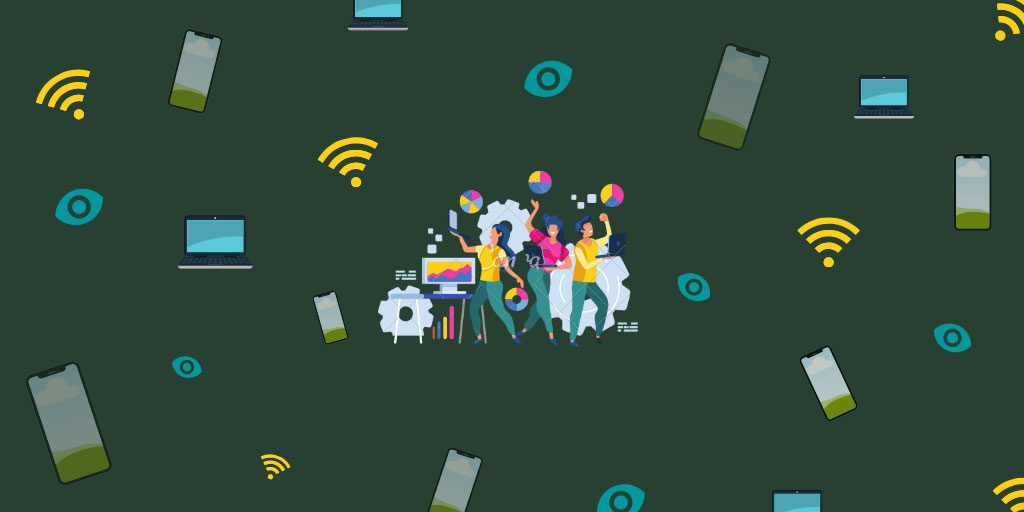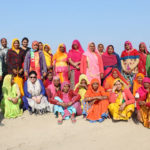Globally, women use the internet 12% less than men on average. In India, internet users were expected to register double digit growth and reach 627 million in 2019. As per the India Internet 2019 report, the female internet user population in the country is only half of the 258 million male internet users, and this bias is even more evident in rural India.
But where women hoped for the Internet to be cyber-feminist, and provide a free, responsible and safe platform for all voices, the flipside is the hostility and harassment that women face because of the internet’s garb of anonymity and easy access. It’s become really easy for anyone with the resources to pay for a cheap internet plan, to come online and create a profile that can connect the user across the world.
In India, the most common misuse of the easy access and cheap plans is fake identities, especially when social media platforms initially ask for very basic information to get you a profile. Once you sign up, it’s simple to connect one profile to the rest. With surfing online and having a vast pool of information available, it has become increasingly uncomplicated to save photos and create a fake profile, even really good and thorough fake profiles, and start befriending people.
Personally, we’ve seen an insane amount of documentaries, shows and horrifying criminal cases that have resulted from how the internet functions and the maliciousness of the users. Netflix’s recent docu-series “Don’t F**K With Cats: Hunting an Internet Killer, on who is Luka Magnotta, how many is Luka Magnotta, was it necessary to kill cats online? and did he almost get away with murder with the help of the internet? Is a good lesson in how good and bad the internet can be.
With ease of access and cheaper data plans, India has ensured that women, especially in rural areas, can have access to the internet as not just a connecting platform, but more importantly a business platform. But at the same time, it’s provided an ease of access for misogyny and patriarchy to ensure that women feel ridiculed and step away from the internet.
With the lives that we lead today and how ‘juiced up’ we are when it comes to doing things online, and not physically, the internet has become a natural part of our life, where even hanging out with our family, friends, partners can happen online and not actually sitting across a table. People have become used to looking at the internet as a diary or a journal and becoming really really free with the information and photos they share and think they’re sharing with just a restrictive, accepted audience.
The physical and offline abuse and harassment that women face, found its way online because of how easy it is for anyone to come online and fake their identity. With the widespread news of online fraud, credit card scam and leaking of private photos without consent, stalking women and perpetrating violence even when there’s no physical contact is what makes women either reduce their online time or completely remove their profiles from all social media platforms.
The infamous case of a class 10 girl being killed by her online friend in Telangana in 2019 is how malicious these online citizens can get. This is after the statistics by Symantec that shows that 8 out of 10 people in India have experienced some form of online harassment, with 41% women having faced sexual harassment on the internet. Though the internet is male-dominated and provides more power to its users, women are often left with horrible harassment and mental scars. Speaking from personal experience, when I first got online I would never engage with strangers or share photos because of the fear of being trolled or made fun of, but when security settings started evolve and user-friendly, it also became evident that internet provides an opportunity to network, get news, and connect with people across the world in seconds.
When we hear that the World Wide Web is a vast and always changing and evolving being, perhaps only cybersecurity experts can explain how much of the internet we cannot even access through our popular search engines. “The Deep Web” might be fascinating and illuminati for most, but it holds megatons of important and valueable information ranging from private pictures, financial data, credit card information, drugs, pornography, and even “off-the-charts requests” that includes payment for murder through bitcoin. When we say that nothing gets deleted from the internet, it’s the harsh truth and something that should make all of us think twice before we casually put anything on the internet. Looking at the internet as a liberating platform means using it in a responsible and safe way, but also making it safer for others. Often times, we get so invested in making the internet safer for us that we see the internet being unsafe for others and we don’t do anything about it. Using the security tools provided by the various social media platforms are not just for personal security but also help.





